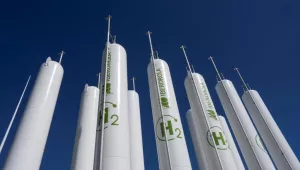Energy Policy Seminar: Alex Clark on "Capitalizing on Coal"
China’s development institutions have played a role in financing approximately 40GW of currently operating overseas coal power plants. Retiring these plants early will likely require concessional financing to reduce the stranded costs to investors and address the consequences for related stakeholders, including workers and electricity consumers.
Join us for an Energy Policy Seminar featuring Alex Clark, Visiting Predoctoral Research Fellow at the Belfer Center's Environment and Natural Resources Program and Science, Technology, and Public Policy Program. Drawing from a forthcoming paper, Clark will give a talk entitled "Capitalizing on Coal: Early Retirement Options for China-Backed Coal Plants in Southeast Asia and Beyond," in which he will examine the early retirement costs and apply the findings to real-world market and political contexts in four countries. Q&A to follow. Buffet-style lunch will be served.
Registration: In-person attendance is limited to current Harvard ID holders. No RSVP is required. Room capacity is limited and seating will be on a first come, first served basis.
Members of the public are welcome to attend virtually via Zoom. Virtual attendees should register using the button below; upon registering, attendees will receive a confirmation email with a Zoom link.
Recording: The seminar will be recorded and available to watch on this page (typically one week later). Those who register for this event will automatically receive a link to the recording as soon as it becomes available.
Accessibility: Persons with disabilities who wish to request accommodations or who have questions about access, please contact Liz Hanlon (ehanlon@hks.harvard.edu) in advance of the session.


